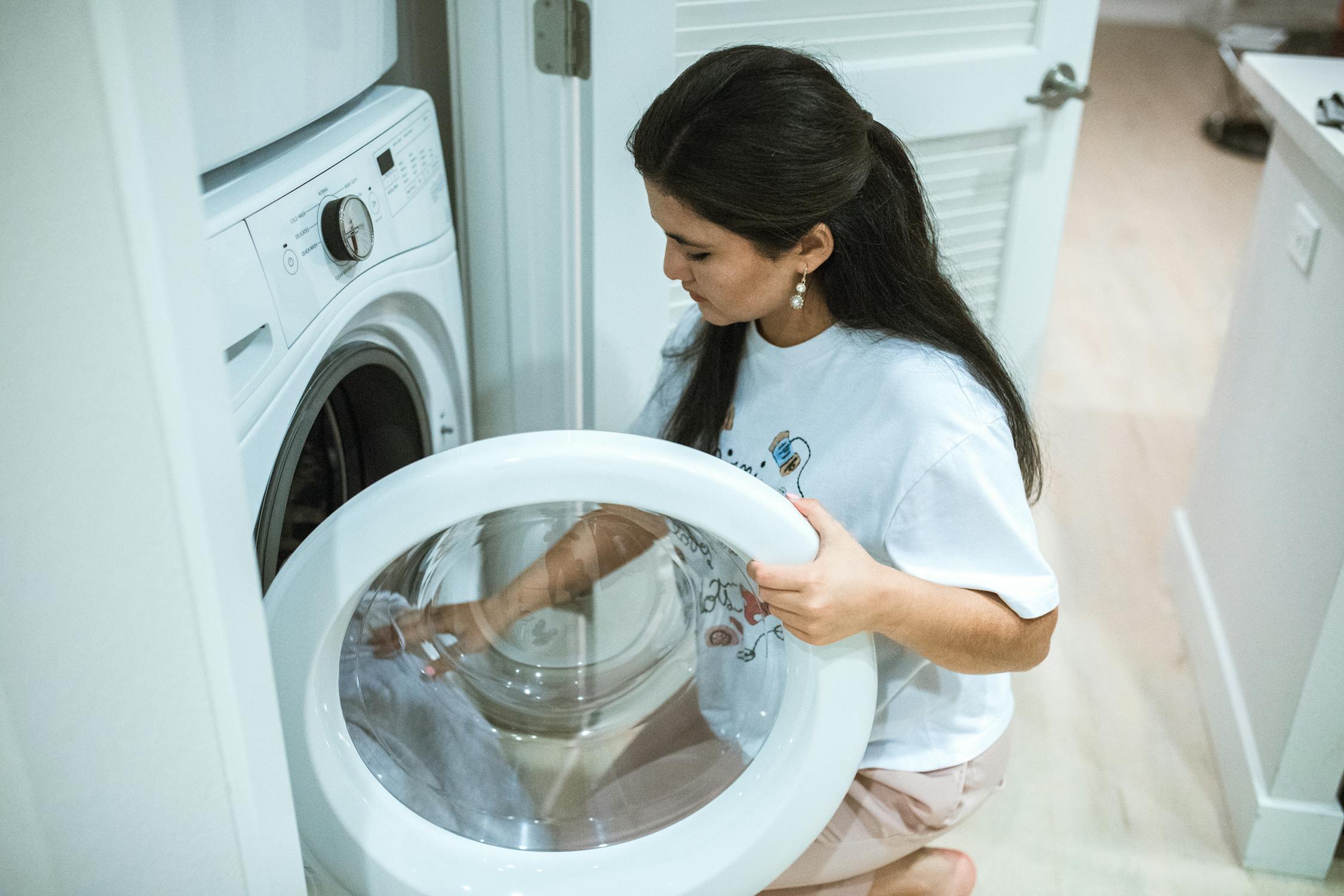How to Earn $3,000/Month Working as a Laundry Attendant in Canada
Working as a laundry attendant in Canada offers a reliable path to earning a steady income, particularly for individuals seeking entry-level employment in the hospitality or services sector.
With the right strategies and knowledge, earning up to $3,000 a month is possible, even in a field that typically offers modest wages. This guide explains how to maximize your earnings, outlines opportunities in different provinces, and answers frequently asked questions.
Results
#1. What is your primary reason for considering a marriage visa?
#2. Do you know which documents are required for a marriage visa application?
#3. How soon are you planning to apply for a marriage visa?
#4. Are you aware of the benefits a marriage visa provides?
#5. Which challenge do you think is the hardest part of applying for a marriage visa?
#6. What support would be most helpful to you during the application process?
Understanding the Role of a Laundry Attendant
Laundry attendants are essential workers in hotels, hospitals, laundromats, and dry-cleaning establishments. Their primary duties include:
- Operating washing machines, dryers, and other laundry equipment.
- Sorting, folding, and pressing clothing or linens.
- Maintaining cleanliness in the laundry area.
- Inspecting laundered items for quality.
This role typically requires little to no formal education, with most skills learned through on-the-job training.
Average Earnings of Laundry Attendants in Canada
The average salary for laundry attendants in Canada is approximately $17.30 per hour, though wages can vary based on the province, employer, and level of experience. Working full-time (40 hours per week) at this rate translates to about $2,770 per month before taxes.
However, with overtime, strategic job selection, and additional shifts, earning $3,000 or more per month is achievable.
Steps to Maximize Earnings as a Laundry Attendant
1. Choose High-Paying Regions
Wages for laundry attendants vary significantly across provinces. For example:
- Alberta and British Columbia typically offer higher hourly rates compared to other provinces due to higher living costs.
- Smaller towns in regions like Quebec or Newfoundland may have lower wages but offer affordable living expenses.
By targeting job opportunities in provinces with higher pay scales, you can boost your earnings.
2. Work Overtime or Extra Shifts
Laundry services in hospitality and healthcare often require 24/7 operations. Many employers offer overtime pay at 1.5 times the regular hourly wage. By working 10–15 extra hours a week, you can add approximately $600–$1,000 to your monthly income.
3. Consider Unionized Positions
Unionized workplaces often provide better pay, benefits, and job security. Research employers who partner with unions, such as hospitals or government institutions.
4. Look for Employers Offering Benefits
Some employers offer additional perks such as:
- Housing allowances.
- Meal subsidies.
- Performance bonuses.
Choosing jobs with these benefits can significantly improve your overall compensation.
5. Gain Specialized Skills
While the job is generally entry-level, gaining certifications or experience in related fields, such as textile care or equipment maintenance, can make you eligible for higher-paying positions.
6. Leverage Multiple Job Opportunities
In areas with high demand for laundry services, consider taking on a part-time job in addition to your full-time role. Working weekends or evenings in laundromats can help you reach your income goals.
Table: Earnings of Laundry Attendants Across Canada
Province Average Hourly Wage (CAD)
Alberta $20
British columbia $21
Ontario $20
Quebec $19
Saskatchewan $19
Nova Scotia $18
Benefits of Working as a Laundry Attendant in Canada
1. Low Entry Requirements: Most positions do not require advanced education or experience, making them accessible to newcomers and students.
2. Job Stability: Demand for laundry services remains steady in industries like hospitality and healthcare.
3. Opportunity for Growth: Workers can move into supervisory roles or specialize in textile care.
High Paying Jobs in Canada for Immigrants
Job Title Average Salary (CAD)
Truck Driver $50/Hour
Tailor $40/Hour
Mechanic $7k/Month
Welder $6k/Month
Challenges and How to Overcome Them
1. Physical Demands
Laundry work can be physically taxing due to long hours of standing, lifting, and sorting. To manage this:
Invest in supportive footwear.
Practice proper lifting techniques.
2. Repetitive Nature
The routine tasks can become monotonous. Consider switching between different laundry tasks or listening to music or podcasts to stay engaged.
FAQs
What qualifications do I need to become a laundry attendant in Canada?
Most positions require no formal education. Employers typically provide on-the-job training to teach machine operation and quality control.
Is it possible to earn more than $3,000 per month in this field?
Yes, by working overtime, taking on additional shifts, or seeking jobs in high-paying regions like Nunavut or British Columbia.
Do laundry attendants receive benefits?
Some employers, especially in unionized or government institutions, offer benefits such as health insurance, vacation pay, and bonuses.
What skills are essential to succeed as a laundry attendant in Canada?
Key skills include time management, attention to detail, physical stamina, customer service, and the ability to operate laundry equipment efficiently.
Can I work as a laundry attendant as a newcomer to Canada?
Absolutely. Laundry attendant roles are beginner-friendly and open to newcomers with a work permit.
Are there growth opportunities in this field?
Yes. Workers can advance to supervisory roles or transition into related fields like hotel management or textile maintenance.
What are the working hours for a laundry attendant?
Most laundry attendants work full-time (35–40 hours per week), with shifts that may include evenings, weekends, and holidays depending on the employer. Part-time positions are also available, often requiring 15–30 hours weekly.
How much does overtime pay add to my earnings?
Overtime is typically paid at 1.5 times the regular hourly wage. For example, if you earn $17/hour and work 10 hours of overtime per week, you can add approximately $1,020/month to your income.
Do laundry attendants get promoted?
Yes, experienced attendants can be promoted to supervisory roles, such as Laundry Supervisor or Operations Manager. These roles come with higher wages and additional responsibilities.
Is this job physically demanding?
Yes, it involves standing for long periods, lifting heavy items, and repetitive movements. However, proper ergonomics, breaks, and fitness routines can help mitigate the physical strain.
Are there seasonal variations in job availability?
Yes. Some industries, like hospitality, may see a surge in demand during peak travel seasons, providing opportunities for additional shifts or temporary jobs.
Are there regional differences in laundry attendant salaries across Canada?
Yes, salaries can vary depending on the province or city. For example, larger cities like Toronto or Vancouver may offer higher wages to offset the cost of living, while smaller towns may pay less.
What industries employ laundry attendants?
- Laundry attendants are employed in:
- Hospitality (hotels, resorts)
- Healthcare (hospitals, nursing homes)
- Commercial laundries (servicing industries like restaurants or airlines)
- Residential laundromats
Is a work permit needed for non-Canadians to work as laundry attendants in Canada?
Yes, non-Canadians must obtain a valid work permit to work legally in Canada. Some employers may also support candidates through the Temporary Foreign Worker Program (TFWP) or other immigration pathways.
Do laundry attendants in Canada require safety training?
While most roles include on-the-job training, some employers require certifications in workplace safety (e.g., WHMIS – Workplace Hazardous Materials Information System).
What tools and equipment will I need to use?
Common tools include:
- Washing machines and dryers.
- Ironing and pressing machines.
- Steamers.
- Detergents and stain removers.
- Computerized laundry management systems (in larger facilities).
Is fluency in English or French mandatory?
For most jobs, basic proficiency in English or French is sufficient. Communication skills may be required for customer-facing roles or team collaboration.
Do laundry attendants need to wear uniforms?
Yes, many employers require attendants to wear uniforms or protective clothing such as aprons and gloves to maintain hygiene and safety standards.
Can I combine this job with other work?
Yes, many attendants work part-time or split shifts, making it possible to combine this role with another part-time job or freelance work.
What are the long-term prospects for laundry attendants in Canada?
The demand for laundry attendants remains stable due to the essential nature of the service. With experience, workers can transition to higher-paying roles or related industries, such as textile manufacturing or facility management.
Can I transition to another role in Canada’s hospitality industry after working as a laundry attendant?
Yes, experience as a laundry attendant can be a stepping stone to other roles in hospitality, such as housekeeping supervisor, customer service representative, or hotel management positions.
How do I find job openings as a laundry attendant?
You can search for job openings on platforms such as:
- Canada Job Bank
- Indeed.ca
- Hospital and hotel career pages
- Recruitment agencies
Are laundry attendants protected by labor laws in Canada?
Yes, laundry attendants are protected under Canadian labor laws, which ensure fair wages, safe working conditions, and reasonable work hours.
Is training provided on the job for laundry attendants?
Yes, most employers provide on-the-job training for new hires, covering equipment operation, safety protocols, and customer service practices.
What industries employ laundry attendants in Canada?
Laundry attendants work in various industries, including hospitality (hotels, resorts), healthcare (hospitals, nursing homes), and commercial laundries that serve businesses or individuals.
Is there any additional earning potential through tips?
In certain hospitality settings, attendants might receive tips from customers, particularly if the service is customer-facing, such as in laundromats or dry-cleaning services.
Before You Go
Earning $3,000 per month as a laundry attendant in Canada is achievable with careful planning, extra effort, and the right job selection.
This role is ideal for individuals seeking stability, accessibility, and a clear pathway to financial growth. By focusing on overtime opportunities, choosing high-paying provinces, and leveraging available benefits, you can maximize your income and achieve your financial goals.
For those considering this field, the laundry industry offers not only an entry into the Canadian workforce butalso a stepping stone to broader opportunities. Whether you’re a newcomer or a seasoned worker, with the right strategy, you can thrive as a laundry attendant.











